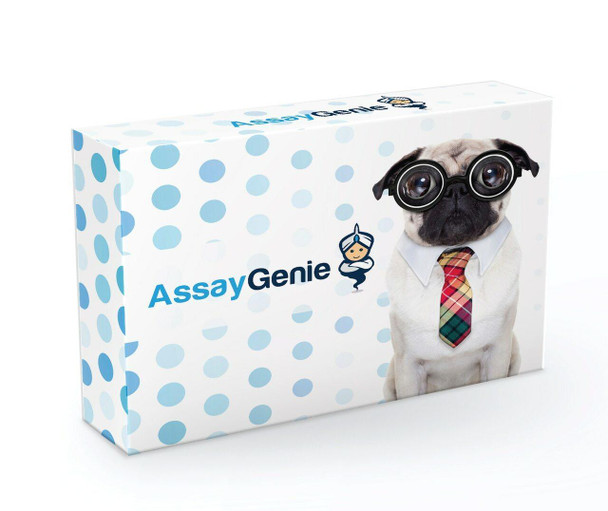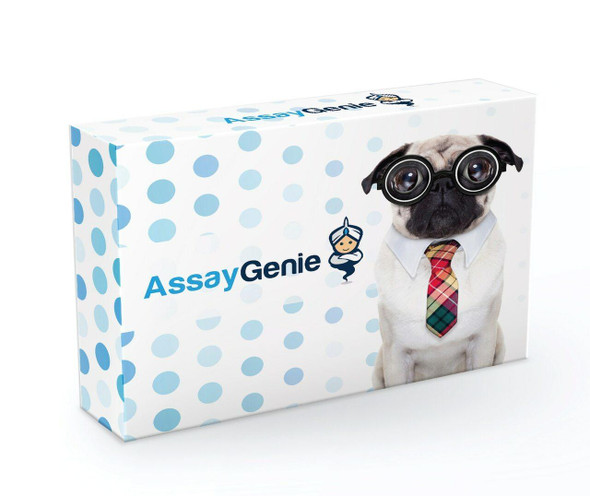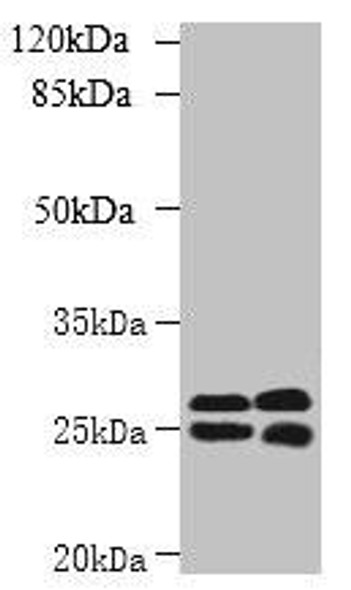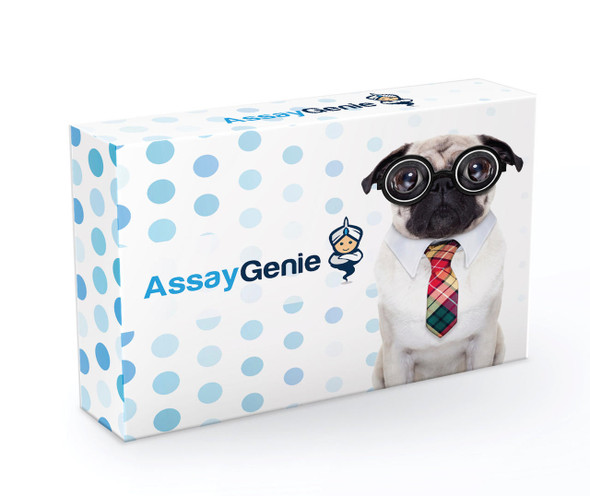Description
CMBL Monoclonal Antibody [PAT2B11AT] (CPAB0121)
The CMBL Polyclonal Antibody (CPAB0121) is a valuable tool for researchers studying CMBL, a key enzyme involved in the regulation of cysteine metabolism and redox homeostasis. This antibody, generated in rabbits, exhibits high reactivity with human samples and has been validated for use in Western blot applications. By specifically binding to the CMBL protein, this antibody enables accurate detection and analysis in a variety of cell types, making it an ideal choice for investigations in the fields of metabolism and oxidative stress research.
CMBL, also known as cysteine-conjugate beta-lyase, plays a crucial role in the breakdown of cysteine conjugates and the production of hydrogen sulfide, a critical signaling molecule with diverse physiological functions. Dysregulation of CMBL activity has been implicated in various diseases, including cancer, neurodegenerative disorders, and cardiovascular conditions. By gaining insights into the function and regulation of CMBL, researchers can uncover new therapeutic targets and strategies for combating these complex health issues.
| Product Name: | CMBL Antibody |
| Product Sku: | CPAB0121 |
| Size: | 5μg |
| Host Species: | Mouse |
| Immunogen: | Anti-human CMBL mAb is derived from hybridization of mouse F myeloma cells with spleen cells from BALB/c mice immunized with recombinant human CMBL 1-245 amino acids purified from Ecoli. |
| Clone: | PAT2B11AT. |
| Reactivity: | Human |
| Applications: | Western Blot, ELISA |
| Purification Method: | CMBL antibody was purified from mouse ascitic fluids by protein-G affinity chromatography. |
| Isotype: | IgG2a |
| Background: | Carboxymethylenebutenolidase homolog (CMBL) is a cysteine hydrolase of the dienelactone hydrolase family which is highly expressed in the liver cytosol. CMBL is the human homolog of Pseudomonas dienelactone hydrolase, which is a protein that participates in the bacterial halocatechol degradation pathway. CMBL which preferentially cleaves cyclic esters activates medoxomil-ester prodrugs in which the medoxomil moiety is coupled with an oxygen atom. CMBL is inhibited by PCMB (p-chloromercuribenzoate) and is encoded by a gene which maps to human chromosome 5p15.2. Furthermore, CMBL converts the prodrug olmesartan medoxomil into its pharmacologically active metabolite olmerstatan, which is an angiotensin receptor blocker, in the liver and intestine. CMBL can also activate beta-lactam antibiotics faropenem medoxomil and lenampicillin. CMBL is widely expressed, with the highest levels in the liver, followed by the kidney, small intestine and the colon. |
| Synonyms: | Carboxymethylenebutenolidase homolog, CMBL, JS-1. |
| Storage Buffer: | For periods up to 1 month store at 4°C, for longer periods of time, store at -20°C. Prevent freeze thaw cycles. |







